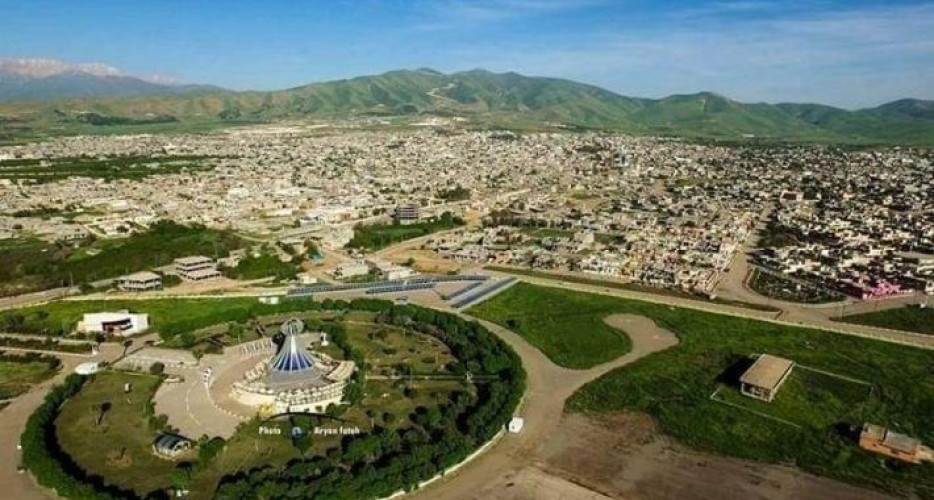The Investment Movement in Halabja Remains Sluggish: Why is the Private Sector Hesitant?

Peregraf- Arsh Mohammed
Although investors have slowly begun to direct their projects towards Halabja, the level of activity remains far below expectations. Officials in the province express cautious optimism about the recent investment movement, but they admit that deep-rooted challenges continue to hold back development.
On one hand, the Kurdistan Regional Government (KRG) has encouraged investors with incentives such as tax exemptions. On the other, the failure to complete strategic infrastructure projects essential for the province’s growth has discouraged private sector involvement.
Halabja has held the status of a province in the Kurdistan Region for more than 11 years, and it was officially recognized as Iraq’s nineteenth province just five months ago. Since the administrative change, officials have pursued several ambitious projects, including the opening of an official border crossing and the completion of the Tuwaqut Bridge that would connect the province with the Garmian Administration. Yet, none of these projects have been finalized.
Engineer Zanyar Hama-Noori, Director-General of Investment in Halabja, told Peregraf that the government continues to provide support through "tax exemptions and administrative assistance to encourage investors to direct their projects to Halabja province." He added that a "significant number of investors have turned to Halabja in the last two years, which is a good level compared to the province’s size and population." Nevertheless, he emphasized that investment in Halabja is "a gradual process, and the results appear only in the long term."
On July 23, 2025, Iraqi President Dr. Abdul Latif Rashid paid his first official visit to Halabja since its designation as Iraq’s 19th province. During the visit, he called for a dedicated federal budget to address the province’s particular needs and announced that he would submit a request for the allocation to be implemented under the direct supervision of the Presidency.
During his visit, President Rashid emphasized the symbolic and historical importance of Halabja, describing it as "an example of struggle and sacrifice for all of Iraq and humanity." He stressed the responsibility of all Iraqis to care for Halabja, so that the tragedy of the 1988 chemical attack is never repeated.
Halabja province, with an estimated population of more than 120,000, includes Halabja city as its center, the Khurmal district, and the sub-districts of Byara, Sirwan, and Bamo.
Simko Salar, the Mayor of Halabja, also spoke to Peregraf, highlighting the mismatch between expectations and reality: "Despite the facilities provided by the Kurdistan Regional Government, the arrival of companies and investors to our city is not at the level of our expectations."
The mayor linked the slow investment movement to several factors, including "the delay of salaries, market sluggishness, and above all, the non-opening of the Sazan border crossing, which has left Halabja in geographical isolation." He insisted that "the province needs significant multi-faceted support to develop."
Another chronic problem facing the province is the underutilization of funds. According to a previous Peregraf report, "Out of the 40 billion dinars allocated to Halabja for 2022, less than four billion dinars were actually spent on the ground." Furthermore, the province’s revenues, instead of being reinvested locally, are directed elsewhere.
Kawa Ali, the former Deputy Governor of Halabja, noted that some investment activity has appeared since the end of 2024. However, he stressed that "despite the initiatives of the Supreme Investment Council, opportunities for investors in Halabja remain limited." He pointed out that the non-opening of the Sazan border crossing, along with the stalled construction of the Tuwaqut Bridge, the Sayed Mohammad Bridge, and over 200 other projects, has kept Halabja locked in geographical isolation. "This isolation makes investors reluctant to bring their projects to the province," he said.
The path to provincial status has been long. On March 13, 2014, then-KRG Prime Minister Nechirvan Barzani signed the decision making Halabja the Region’s fourth province. Three days later, on March 16, then-President of Kurdistan Region Massoud Barzani issued the official decree. More recently, on April 14, 2025, the Iraqi Parliament approved Halabja’s status as Iraq’s nineteenth province. The law was published in the Official Gazette on May 5, 2025, officially bringing it into force.
Yet, after more than a decade as a province, many government departments have not been fully established in Halabja. This has created bureaucratic obstacles for private investors who need local administrative offices for transactions and approvals. According to the Director-General of Investment, even salary delays in public offices have altered the working hours and efficiency of departments, further complicating matters for investors.
Former Deputy Governor Kawa Ali also told Peregraf that investors naturally choose locations where infrastructure, security, and public services are reliable. "Halabja is still lacking in these key areas," he said.
Despite the challenges, a few investors with roots in Halabja have pursued projects in the province out of a sense of responsibility. One such figure is Aso Haji Mohammed Bamoki, a well-known Kurdish businessman who has carried out several projects in Halabja over the last decade. His most recent initiative is a large dairy factory in Halabja city, expected to meet 20 percent of Iraq’s market demand for dairy products while creating substantial job opportunities locally.
Local officials insist that Halabja’s future development depends on a combined effort. The government must complete delayed strategic projects, strengthen local administrative institutions, and open the long-awaited border crossing. Meanwhile, private investors are urged to see Halabja not merely as a place for profit but as a province worthy of long-term investment and support.
Halabja holds deep symbolic weight in Iraq’s collective memory as the site of a chemical weapons massacre by Saddam Hussein’s regime in 1988, which killed over 5,000 civilians. The province now anticipates increased public investment, stronger local governance, and broader representation at the national level.